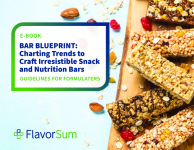Ajinomoto and Asda draw battle lines over aspartame
against US supermarket Asda over labelling on own-brand products
that calls aspartame a 'nasty'.
Aspartame, which has been permitted in foods and beverages in both the EU and the US since the early 1980s, has nonetheless been the subject of suspicion over safety.
The European Food Safety Authority (EFSA) last year reasserted its view that there is no credible scientific evidence for ill-effects.
The aspartame supplier says it has unsuccessfully tried to negotiate an agreement with Asda over labelling that says denigrates aspartame.
"Ajinomoto has taken this legal step to defend the reputation not only of the ingredient, but also of the many products that are sweetened with aspartame," said the company.
Asda executives could not immediately be reached for comment.
However This is Money reported a spokesperson for the supermarket as saying the removal of aspartame from products was led by consumer preferences.
The UK supermarket announced last year that it would remove all artificial additives from its own-label food products, as consumers increasingly prefer foods with an all-natural label.
The 'no nasties' label that has subsequently appeared on its 'Good For You' range lists aspartame as an undesirable, alongside artificial colours and flavours and hydrogenated fat.
However Ajinomoto says aspartame is a simple food ingredient made from amino acids, building blocks of protein that occur in common dietary components line eggs, meat, fish, cheese and milk.
"When we consume aspartame, it is broken down in the digestive system to tiny amounts of common dietary components," said Ajinomoto in a statement.
"It is therefore absurd that Asda should refer to aspartame as a 'nasty'."
The ingredients firm also drew attention to aspartame's use in diet products in place of sugar.
In the light of efforts to counter obesity and trim waist-lines, Ajinimoto says it is "unconscionable that Asda should try to vilify a safe and beneficial food ingredient".
Consumers in the UK market are particularly sensitive to perceptions of artificial foods, and the E-number system for food additives has long been viewed with suspicion, even though it also applies to natural additives.
This suspicion has only increased since the publication of the Southampton study, which linked a cocktail of colourings and sodium benzoate to hyperactivity in children.
The UK industry has been taking moves to reduce use of the implicated colours, even though EFSA has deemed the Southampton study was no grounds for a ban.
However consumers have shown a tendency to bundle all artificial ingredients together, damning all if there are indications that just one could have undesirable effects.














